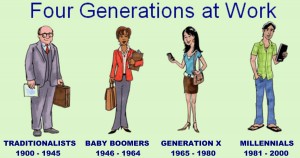Brands across the sit-down, casual-dining industry are trying to claw their way out of a death trap. Their mistake – failing to attract millennials, the generation born from the early 1980s to the early 2000s.
Chains like Ruby Tuesday, Applebee’s, TGI Friday’s, Buffalo Wild Wings and Chili’s are trying to claw their way out of the casual-dining death trap. All are facing sales slumps and dozens of restaurant closures.
Ruby Tuesday has announced that it will be bought by private-equity firm NRD Capital after four straight years of declining sales.
Fast-casual chains like Chipotle and Shake Shack are on the rise. People are gravitating towards independent restaurants. And, there are simply too many restaurants open in the U.S., with some worrying that the nation is “over-retailed” and “over-restauranted.” Yet casual dining’s biggest failure has been its inability to win over younger millennial customers.
“In terms of casual dining, a lot of it kind of comes down to the brands that are just kind of dated,” Wedbush analyst Colin Radke told Business Insider earlier this year. “Millennial consumers are more attracted than their elders to cooking at home, ordering delivery from restaurants and eating quickly, in fast-casual or quick-serve restaurants,” Buffalo Wild Wings CEO Sally Smith wrote in a letter to shareholders earlier in May.
Smith is stepping down as CEO at the end of the year, after a months-long battle with activist investors over the chain’s declining sales and business strategy.
Applebee’s has announced plans to close between 105 and 135 locations this year. John Cywinski, Applebee’s brand president, said in a call with investors that the closures follow the chain’s failed attempts to win over millennials.
“In my perspective, this pursuit led to decisions that created confusion among core guests, as Applebee’s intentionally drifted from what I’ll call its ‘Middle America’ roots and its abundant value position,” Cywinski said. “While we certainly hope to extend our reach, we can’t alienate Boomers or Gen-Xers in the process.”
Much of the casual-dining industry is in crisis mode, pulling out all the stops to win over millennials, budget shoppers or some combination of the two. TGI Fridays is testing booze delivery. Chili’s cut 40% of its menu items and Applebee’s is going all-out on a $1 margarita promotion.
Winning over millennials isn’t optional – it’s a life-or-death proposition for casual-dining chains.
